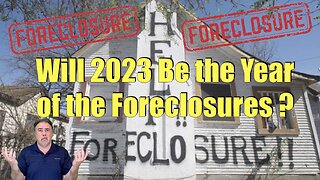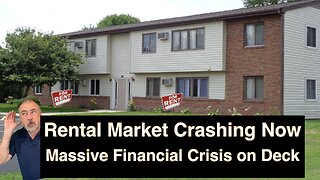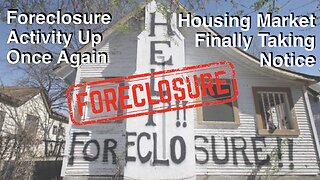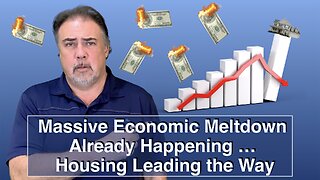What Happens to a Multifamily Property in a Downturn and How to Prepare for it
The "ups and downs" in the U.S. economic cycle are defined in terms of periods of expansion or recession. During expansions, the economy, measured by trends like production, sales, and job growth. Recessions are periods when the economy is contracting or shrinking. In this case, you will see mass layoffs, a massive dip in home prices because of no demand and a decrease in business investment.
Having been in the real estate business for over 15 years, I personally experienced many cycles in the market. Through these phases, I’ve noticed a variety of trends, but there is one, in particular, that is interesting: The landlords & owners that operate their properties with a strong management team typically forecast the market turning and prepare in advance. These landlords are connected with their teams and track the occupancy, rent levels, competition, and time to rent numbers. Armed with this information, they are able to anticipate market turns.
Of course, the market you are operating in will determine how the properties are affected. New York City, Los Angeles, Chicago, and other popular metros will typically only see a slight drop in overall valuation of a property while other areas will experience a larger drop. It’s important to understand the market you are buying. Sure, we are always buying for cash flow, but appreciation will vary depending on where you are buying.
When we are going through a real estate downturn, multifamily properties that are cash flowing, have cash in reserve, and are run very well will have the highest chance of surviving. The consensus is that we are still years away from a correction, but it’s best to prepare now and budget for downturns and difficult times.
Here are 8 tactics for you to consider:
1. If you are due for a refinance and it makes sense, do it sooner than later. It is easier to refi now while your cash flow is healthy. After you do, push for a longer amortization.
2. Before taking on an extra expense, consider the benefit you will receive. By performing a cost-benefit analysis, it will keep expenses under control, and give you a bare minimum to watch for in case the local economy goes from bad to worse.
3. Keep emergency fund/reserves in each property to cover tenants that cannot meet their monthly expenses and for unexpected expenses.
4. If your multifamily has multiple leases that are coming up at the same time, you will want to renew their lease early. You may also want to incentivize them to sign on for a two year in exchange for painting a room or installing a ceiling fan. The cost of those items is small compared to the benefit of maintaining a high occupancy in your building.
5. Update your break-even point. You probably calculated the minimum number of units needed to cover the mortgage, any required utilities, and formal obligations. If not, find what vacancy rate will result in the property’s monthly cash flow equaling the mortgage payment plus the additional required expenses. Know your number and protect your break-even point.
6. Try to find ways to create additional revenue streams. Aside from updating finishes internally, such as upgraded countertops and accent walls, you can also offer door-side trash pick, covered carports, and cable.
7. Work on the major repairs and upgrades before the downturn. Borrowing money for improvements is much easier during an expansion.
8. Make sure your tenants are happy. Whenever you have a turn, you are not only losing on that rental income, you also need to turn the unit, increasing your expenses.
The feel of a market downturn will be different depending on your asset class and location. The properties that will see the most fluctuation are those that are already in weaker markets, C- and D Class properties, as well as properties located in areas of low population and job growth.
Properties in high growth and high activity markets like New York and Los Angeles will still feel the downturn, but not to the magnitude these other properties will. While a C Class in New York City will be felt, they will still be able to pull in the rent level they did the previous year. They just will not have the ability to increase until the market turns again.
Finally, remember, never buy on speculation. Always buy for cash flow. When you are in uncertain economic times, it’s the cash flow that will keep the property from getting into trouble.
What lessons did you learn going through a recession? Have you implemented anything of what I just mentioned? Let me know in the comments.
If you learned something from this video, give it a thumbs up and check out our podcast Bulletproof Cashflow on iTunes or Stitcher, and subscribe to our YouTube channel. We are working on getting new content out all the time to help you build your success in the world of multifamily.
Be great.
-
 4:31
4:31
bulletproofcashflow
3 years ago $0.01 earned5 Reasons Why I Like Multifamily Deals
50 -
 6:22
6:22
bulletproofcashflow
3 years agoMultifamily Mindset - What Happens to a Multifamily Property in a Downturn and How to Prepare...
55 -
 31:19
31:19
HousingBubble2withRandyPatrick
1 year ago $0.02 earnedHousing Bubble 2.0 - All Signs Point To a Housing Market Correction or Crash - Queue Foreclosures
234 -
 23:18
23:18
HousingBubble2withRandyPatrick
1 year agoWill 2023 Be the Year of the Foreclosures ? Starts Up 169% in 2022 - Housing Bubble 2.0
21 -
 18:35
18:35
HousingBubble2withRandyPatrick
1 year agoRental Market Crashing Now - Massive Financial Crisis on Deck: Housing Crash - Housing Bubble 2.0
32 -
 17:15
17:15
HousingBubble2withRandyPatrick
11 months agoForeclosure Activity Increases - Finally Gets Noticed: Housing Bubble 2.0 - US Housing Crash
88 -
 19:07
19:07
HousingBubble2withRandyPatrick
1 year agoHousing Bubble 2.0 - Housing Market Craters as Sales Get Cancelled at Record Rates
161 -
 15:08
15:08
HousingBubble2withRandyPatrick
4 months ago $0.03 earnedTop US Metros Exposed - Will Commercial Real Estate Implode in 2024 ? Housing Bubble 2.0
137 -
 21:40
21:40
HousingBubble2withRandyPatrick
1 year agoMassive Economic Meltdown Already Happening - Housing Market Leading the Way - Housing Bubble 2.0
13 -
 22:44
22:44
HousingBubble2withRandyPatrick
1 year agoWill Foreclosures Save The US Housing Market ? Boomers Not Selling - Housing Bubble 2.0
19